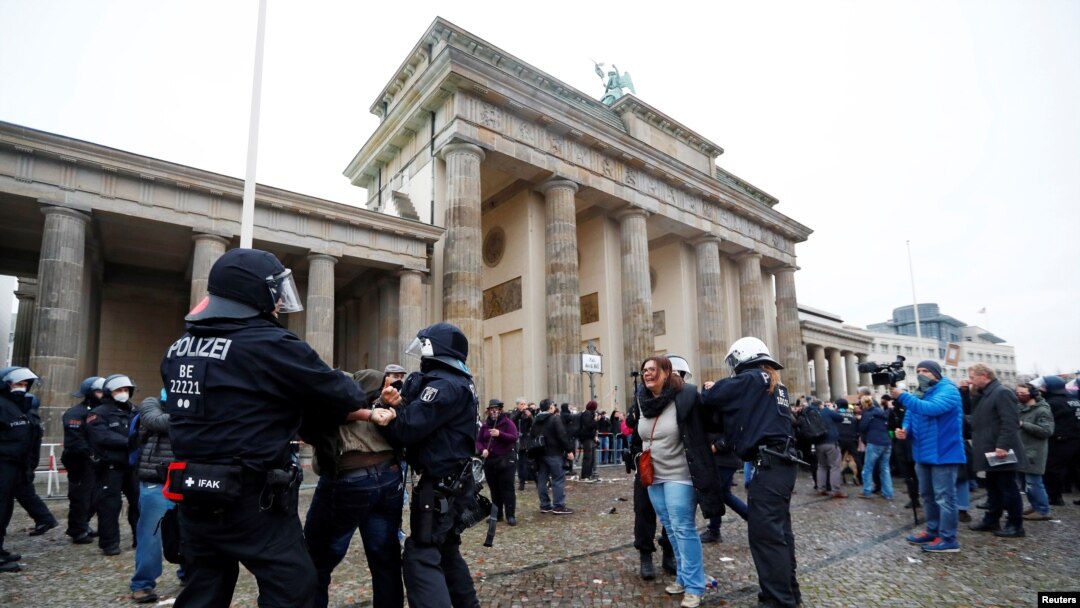Thousands of demonstrators rallied Wednesday in central Berlin to protest the parliamentary vote that would give Chancellor Angela Merkel’s government powers to enforce restrictions aimed at curbing the spread of COVID-19.
Germany's lower and upper houses of parliament are due to vote and pass laws Wednesday that could allow the government to impose restrictions on social contact, rules on mask-wearing, drinking alcohol in public, shutting shops and stopping sports events.
Although most Germans accept the latest limited lockdown to tackle a second wave of the virus, a minority of right-wing critics say the law gives the government too much power. The far-right Alternative for Germany (AfD) has even compared the measures to the Enabling Act of 1933 that paved the way Hitler's Nazi dictatorship.
Berlin police, bolstered by forces from around the country, cordoned off a wide perimeter around the capital's government center, and a series of protests planned outside of Germany's Bundestag parliament building were banned due to security concerns.
At one point, security officers used a water cannon to subdue protesters and keep them away from the parliament building.
One protester wore a face mask with the words "Merkel-Muzzle," others held banners with slogans such as "For Enlightenment. Peace and Freedom.” But most protesters were neither wearing masks nor socially distanced.
Germany, Europe's largest economy, was widely praised for keeping infection and death rates below those of many of its neighbors in the first phase of the crisis but is now in the midst of a second wave, like much of the rest of Europe.
The number of coronavirus cases in Germany rose by 17,561 to more than 833,307, according to data Wednesday from the Robert Koch Institute. The death toll stands at more than 13,119.


